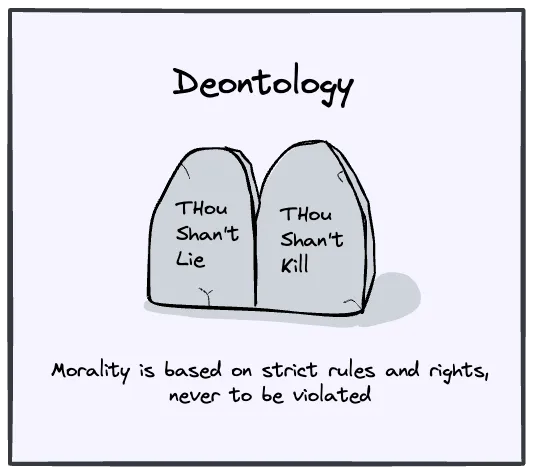Deontology
Notes
Deontology is an ethical framework built on duties and rights. This is a top-down approach for ethics, dictating that certain actions are always good / wrong. Binary Thinking For example, lying is always bad because it goes against the idea of treating others as humans who have the same rights as yourself. Similarly, breaking into someone's home or attacking someone is also always wrong. Intention
The main fault of deontology is that those absolute rules usually have exceptions that deontology just can't cover. For example, what if an axe murderer comes to your house and asks where are your kids? shouldn't it be okay to lie then? What about killing out of self defense?
Deontology is different from Utilitarianism that evaluates the moral worth of an action based on it's results. Deontology on the other hand gives more importance to the Intention behind it.
As with utilitarianism, the attempt to reduce morality into a simplistic, rational process has several flaws:
- It disregards Context - every action is either universally moral or immoral, there is no room for deciding what's right in the given moment based on the specific circumstances of that experience
- it lacks Diversity - it is as if we can all come to the same moral agreement based on rationality alone. It doesn't accept more than a single worldview, i.e it is as if there is only one correct moral answer.
- It ignores our emotions - deontology is based on duties derived by reason. It treats our emotions as things that only lead us astray, even though Morality is both rational and emotional
Visual

Overview
🔼Topic:: Ethics (Map) ◀Origin:: Immanuel Kant (philosopher) 🔗Link::